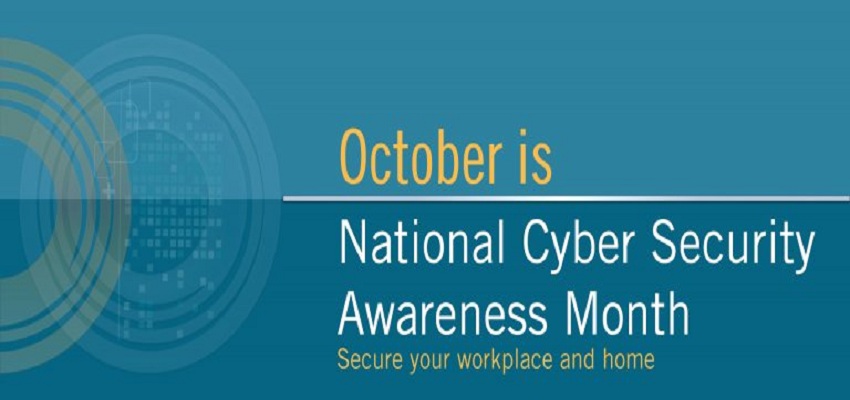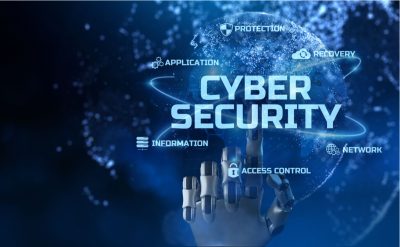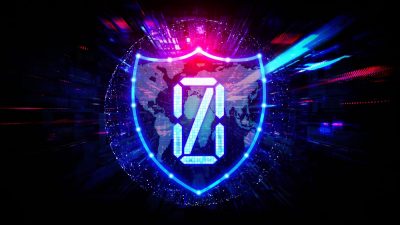October is a National Cyber-Security Awareness month to raise awareness about vital role cyber-security plays in securing the personal and professional data of all American citizens to protect them. According to the recent study, cybercrime is estimated to have cost the world almost $600 billion in losses and about two-thirds of the online users have had their personal data stolen.
As cyber-security becomes imperative for the organizations there is an increasing demand for the cyber-security workforce. To solve this huge demand for the cyber-security professional’s universities in the U.S. are inculcating new cyber-security programs designed to prepare students for cyber-security jobs. Startups are providing vocational courses in cyber-security are seeing investors pouring in funds. U.S. military trains active duty military personnel in combating cyber threats are actively sought in the corporate world.
Guy Berger, a chief economist for LinkedIn said in a statement “In September 2018 11,000 cyber-security professionals in San Francisco Bay Area were needed, 5000 in New York and 4,000 in Seattle.”
Currently, there are a huge number of cyber-security professionals who are employed across the nation, but still, we require more of them and with skills. The growing threats and recent data breach have resulted into ceasing their operations have made corporations aware of the implications of not having a cyber-security solution. The shortage of trained and skilled cyber-security personnel will be touching 1.5 million by 2020. According to the survey by ISACA’s cyber-security it takes around six months or longer to fill a position in cyber-security. Organizations under the current cyber threat cannot sit around and wait for cyber-security expert. Here are some tips to identify the skills and professionals required to protect your data,

1. Diversity: Cyber-Security experts can come from a diverse background that can bring new ideas and versatility into the team. In the current scenario, it seems that most of the cyber-security professionals either come from IT background or Networking background. This has resulted in a kind of stagnant innovation in many of the organizations who have hired security professionals from the IT industry. Many federal agencies have hired a cyber-security professional or trained them to be one come from finance professionals. These other sector people are passionate about information security and technology. Organizations can even venture into boot-camps and competition to recruit fresh talent.
Major corporations across the globe have openly reached out to the hackers to protect them. Kevin Mitnick, who was a hacker earlier, and on the FBI’s most wanted list for hacking into corporations went to jail for five years. He now helps corporations to secure their data and even government agencies.
To, know more about cybersecurity and how organizations can protect their data? You can download our whitepaper.
As universities are introducing cyber-security programs and the demand for such profession is high more students from different backgrounds are now opting for the program. Universities are now also providing a vocational course on cyber-security that takes up to six months to eight months to train a person on cyber-security issues; who can be hired directly into the system. Hiring through a number of sources and setting the procedures for the same will help to channelize the recruiting for the cyber-security professional.
2. Experience: A right mix of experience and entry-level candidates will be beneficial for setting up the cyber-security team. Experience people have hands-on experience in real-life situations when cyber threats can over escalate, and even in damage control. Experienced professionals are difficult to find but they do exist, with dedicated cyber-security focus organizations can secure the innovations of the organization. Many of the experienced security professionals work as consultants and hiring them for full-time will help to set-in regulations and compliance for data security. Security conferences can be a good place to connect with many of the experienced cyber-security professionals who might be looking for an opportunity to work with an organization.
3. Paying the Candidate: It’s highly uncertain to determine the current range of salary you could offer to any cyber-security professional based on the experience. There are no sufficient data available of people with same skills working in other organizations and their pay scale. Hiring managers have to cope-up with the current situation of cyber-security professionals end up correlating different job description and salaries to create a requirement. It’s important that your HR department knows the current situation of the market and which candidate would best for the role. If the HR has incomplete knowledge about the security profession it could hurt your ability to recruit. Many HR’s starts negotiating from a low band of salary and this makes the candidate feel unwanted in the given organization. Organizations that are inflexible on salary will not be able to attract a pool of talent that will help in setting up the cyber-security of the organization. Quality requires price and it’s quite important that you understand a good cyber-security professional will only help the growth of the organization.
4. Selection and Opportunities: The 80/20 rule is clearly applicable in the security professional team also, 20 percent of the people would be contributing to 80 percent of the advancement and threat neutralization. So you have to be selective with your cyber-security team because they would be handling some of the most sensitive data of the organization. A thorough background check of the candidate would not be a bad idea. Organizations usually invest a high degree of trust when they hire a security expert or team they expose some of the most critical data and business plan to them.
The technology industry is rapidly changing and new developments are constantly affecting the environment. So it’s important that constant reskilling of the employees are done as the learning should never be the single factor constant. Providing growth and learning opportunities- sending them to conferences, financing a vocational course will help your team to achieve advancement in cyber-security. Organizations have to believe in the people and the cyber-security should be in the long-term plan to see growth opportunities’ emerge. Data protection is one of the most important features that clients prefer in organizations.
To know more about development and trends in cyber-security download our cyber-security white paper.














